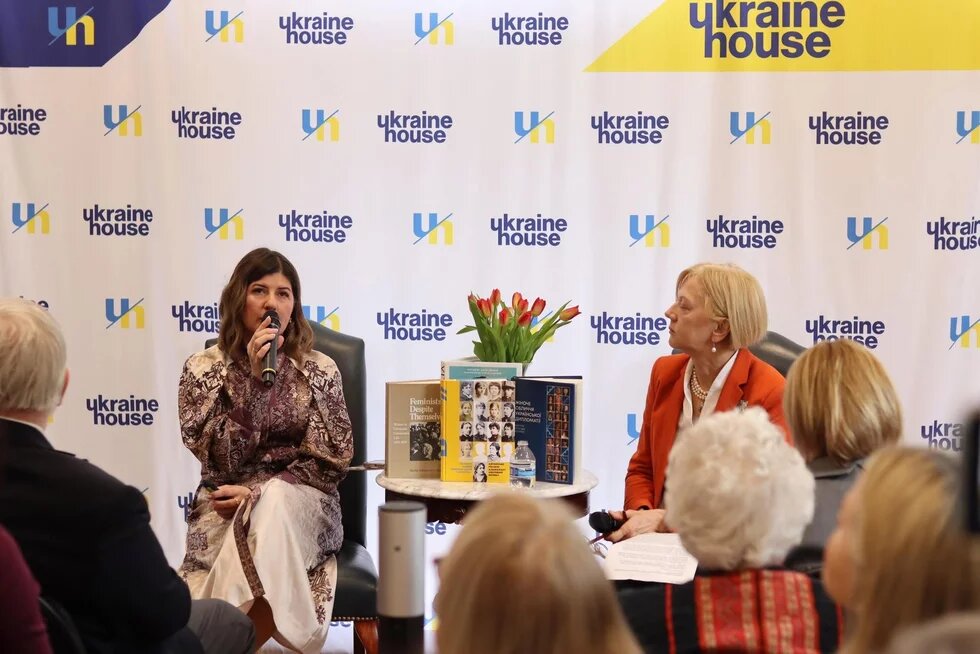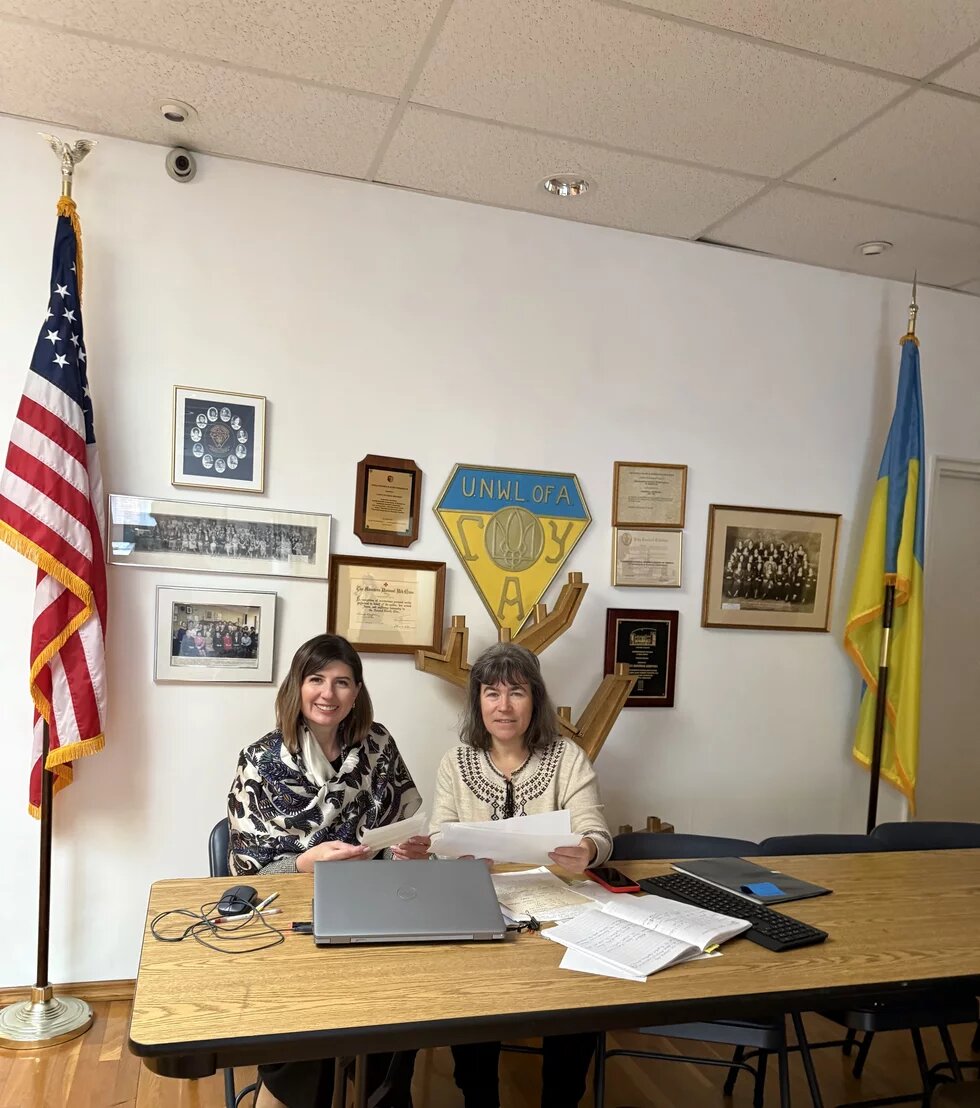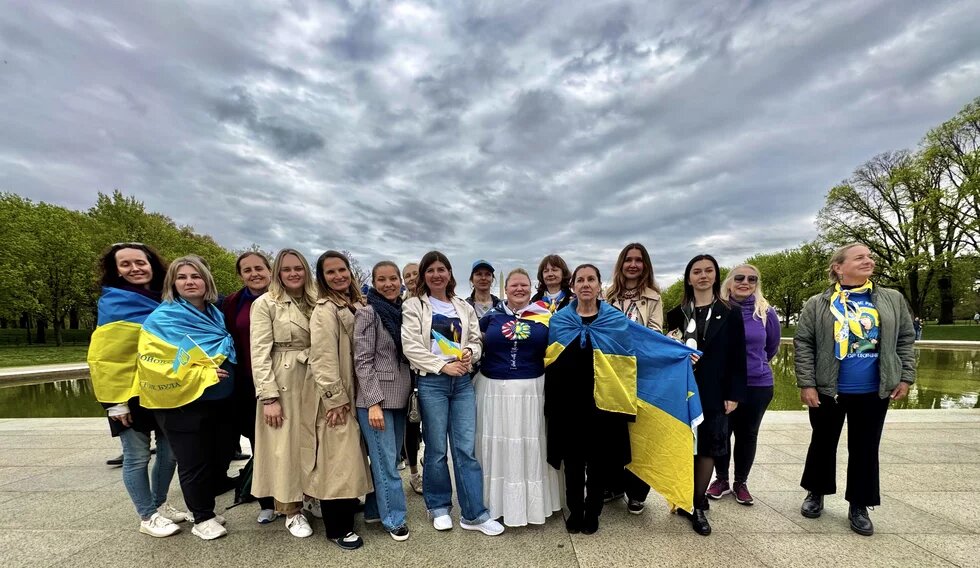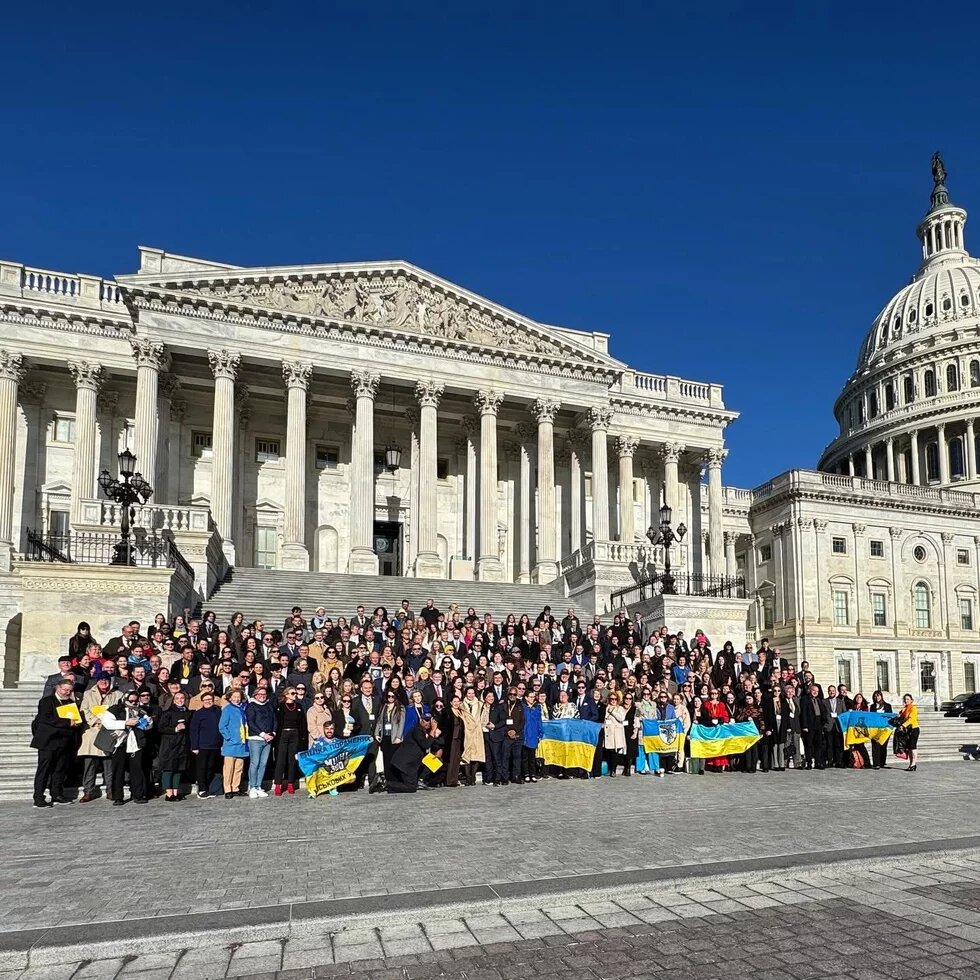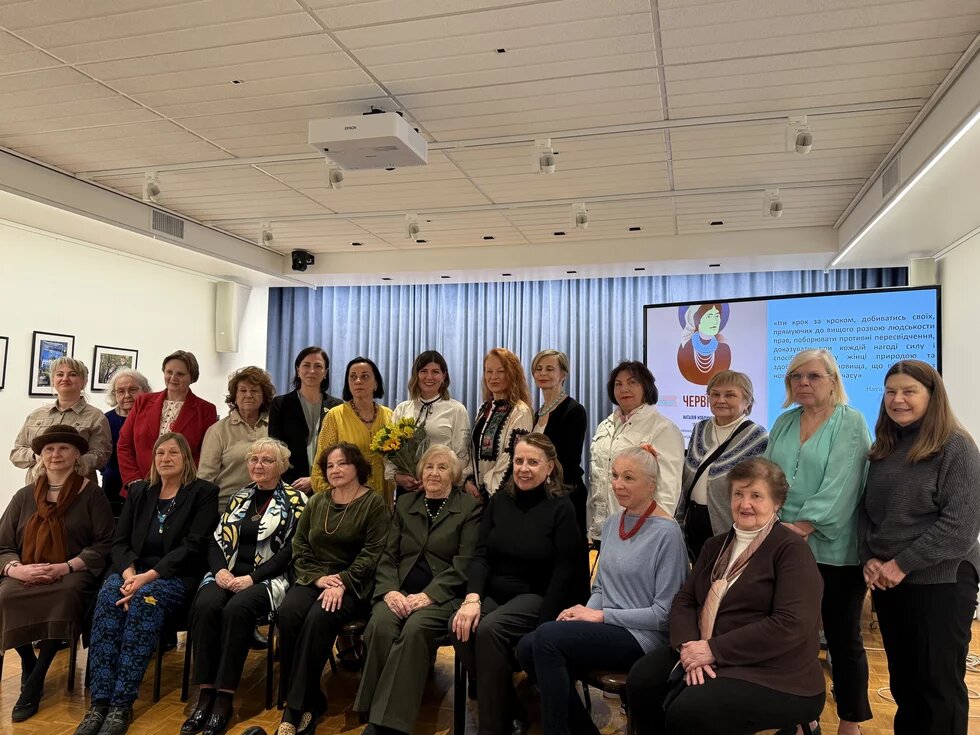
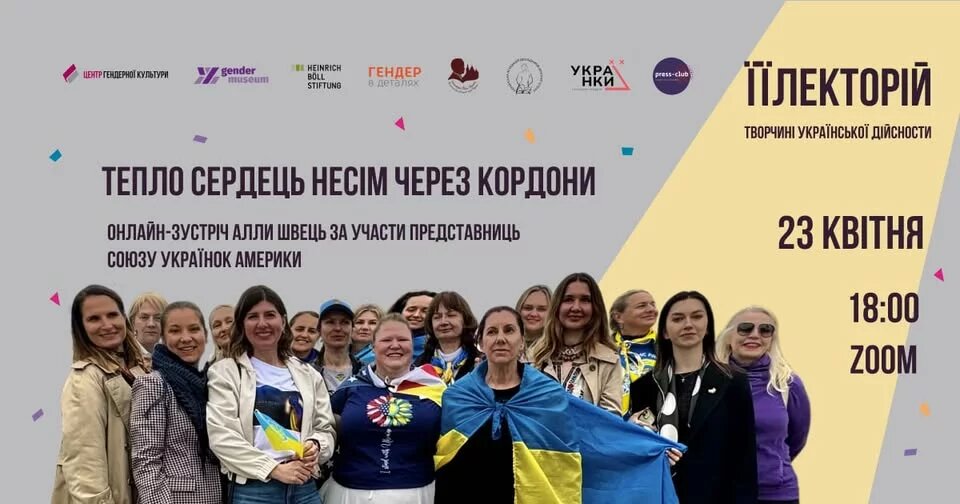
The international project “Carrying the Warmth of Hearts Across Borders” was implemented as part of cultural diplomacy efforts, with financial support from the Ukrainian Women's Fund and in partnership with the Gender Culture Center, the Embassy of Ukraine in the USA, and the Ukrainian National Women's League of America.
The main goal of the project was to present the Ukrainian women’s movement as an integral part of both the international women’s movement and Ukrainian history; to restore the forgotten names of Ukrainian women in the diaspora and highlight their roles in politics, culture, and diplomacy; to promote awareness of the history of the Ukrainian women’s movement worldwide; and to foster connections between contemporary Ukrainian and international women’s organizations.
The project was brought to life through a series of events and meetings of various formats in three key centers of the Ukrainian women’s émigré movement in the United States — New York, Philadelphia, and Washington. Among the highlights were lectures on the life and legacy of Nataliya Kobrynska at the Shevchenko Scientific Society (New York); on the retrospective history of the Ukrainian women’s movement through figures and events at the Ukrainian Heritage Museum (Philadelphia); and on the international activities of prominent Ukrainian women at the Saint Gabriel Institute (Washington). Promoting the Ukrainian women’s movement abroad serves not only to inspire contemporary Ukrainian women in the diaspora to take new initiatives, but also to connect them to the global feminist dialogue and to foster strong international ties.
A key event within the project was the international gathering "The Power of Sisterhood: Ukrainian Women in History, Diplomacy, and the Global Women’s Movement", held at the Ukrainian House in Washington, D.C. The event was organized by the Embassy of Ukraine in the USA and brought together representatives of diplomatic institutions, as well as Ukrainian and international civil society organizations. Alla Shvets delivered a keynote address on the contribution of Ukrainian women to the global women’s movement and to the nation-building history of Ukraine.
An event of such high international standing demonstrates the effectiveness of tools, formats, cultural projects, and partnership initiatives that can be utilized in cultural diplomacy — particularly for promoting the history of the Ukrainian women’s movement abroad. It also highlights how collaboration with international women’s organizations and support from the global community enhances the visibility of Ukrainian women leaders and historical figures of the movement.
From the perspective of cultural diplomacy, the project lays the foundation for future partnerships and collaborations between Ukrainian and international educational centers, museums, universities, civil society organizations, and other diaspora institutions. These may take the form of joint conferences, seminars, and international research initiatives — such as the creation of a shared research database in cooperation with women’s coalitions (including interactive maps, online archives, documentary projects, podcasts, and lecture series).
Alla Shvets also took part in another significant event held in Washington, D.C. from April 6–9 — the Ukraine Action Summit. This large-scale advocacy event aimed to support Ukraine in the U.S. Congress. Over the course of the summit, more than 600 participants from all 50 states — including Ukrainians, diaspora members, and American allies — held over 444 meetings with members of Congress, senators, and their staff, emphasizing the need for comprehensive support for Ukraine.
As part of the project, source-based research was conducted in the archives of the Ukrainian National Women’s League of America, opening opportunities for future joint academic studies. Across various archives and museums in the United States, scattered personal files, correspondence, and memoirs of prominent and lesser-known Ukrainian women in the diaspora are preserved. Bringing these materials back into academic circulation will contribute to a more comprehensive reconstruction of the history of the Ukrainian women’s movement. At the same time, it will also create new professional opportunities for researchers of women’s history and expand the scope of women’s studies both in the diaspora and in Ukraine.
Alla Shvets also held open lessons at two Saturday Ukrainian studies schools — “Nova Khvylka” (Brooklyn) and the Shevchenko School (Washington) — where she shared inspiring stories about the actions and roles of Ukrainian women in the struggle for statehood and the creation of national culture, underscoring the importance of integrating the history of the Ukrainian women’s movement into educational programs.
Representatives of the Ukrainian National Women’s League of America (UNWLA) participated in the meeting and shared insights about the organization, which celebrates its 100th anniversary this year. Among them were UNWLA President Natalia Pavlenko; chapter leaders Lidia Slyzh, Natalia Dobrovolska (Vice President), Irena Khalupa, and Solomiya Kobuta; Head of the Educational Division Anna Petelina; Head of the American Coalition for Ukraine and UNWLA Executive Board member Marianna Tretiak; Head of the Archival Division Orysia Soroka; Project Coordinator and UNWLA representative Lyudmyla Vusek; and Communications Manager of both UNWLA and the American Coalition for Ukraine, Anna Berezniak.
A welcome address was delivered via video message by Professor Martha Bohachevsky-Chomiak, a prominent researcher of the women’s movement and member of the UNWLA’s Washington chapter.
The video of the lecture-meeting is available at the following link.
